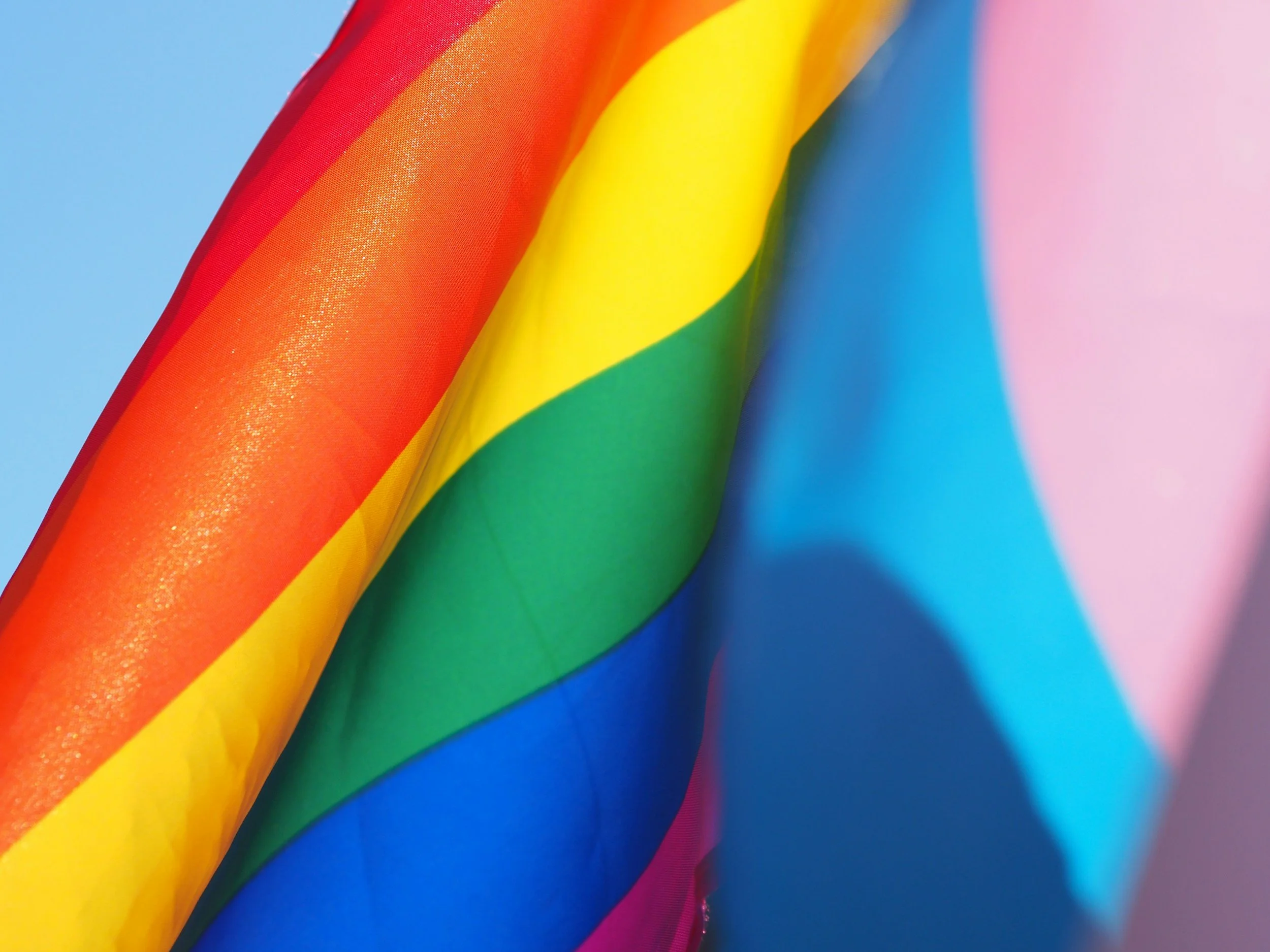
LGBTQIA+ Therapy in Washington, DC
A Safe and Affirming Space for Healing and Growth
Living as an LGBTQIA+ person can bring incredible joy, connection, and authenticity — but it can also involve unique challenges. From the process of coming out to navigating family expectations, facing societal prejudice, or working through internalized shame, these experiences often shape how we see ourselves and how we connect with others.
As a gay psychologist in Washington, DC, I understand firsthand how powerful it can be to have a therapeutic space where you don’t need to explain or defend your identity. My practice is rooted in LGBTQIA+ affirming therapy, which means I approach each client with respect, compassion, and a deep appreciation for the diverse ways we live, love, and create meaning.
Why LGBTQIA+ Affirmative Therapy Matters
Many LGBTQIA+ individuals have encountered experiences of homophobia, transphobia, and heterosexism in their families, workplaces, or communities. These painful encounters can lead to feelings of isolation, low self-esteem, anxiety, depression, or struggles with self-acceptance. Even in affirming spaces, more subtle forms of heteronormativity — such as assumptions about relationships or identity — can leave us feeling unseen or misunderstood.
An LGBTQIA+ affirmative therapist understands that your identity is not the problem. Instead, therapy focuses on exploring the impact of societal and cultural pressures, healing the wounds of prejudice, and supporting you in building a life that reflects your authentic self.
In my Washington, DC psychotherapy practice, I support LGBTQIA+ adults and couples in navigating a wide range of concerns, including:
Coming out and identity development — exploring who you are and finding ways to share your truth at a pace that feels right for you.
Internalized homophobia and heterosexism — understanding how societal messages can shape self-perception and learning to move toward self-acceptance.
Dating and relationships — navigating intimacy, communication, trust, and building healthy connections.
Intersectional challenges — exploring how race, culture, religion, gender, and other aspects of identity intersect with your LGBTQIA+ experience.
Subtle forms of heteronormativity — addressing the ways everyday assumptions and social norms can make it difficult to feel fully authentic.
Substance use and body image — working through struggles that may stem from stigma, stress, or community pressures.
Coping with transphobia and discrimination — building resilience and finding supportive ways to navigate a challenging societal climate.
Managing stress, anxiety, and depression — cultivating tools to reduce overwhelm and reconnect with meaning and joy.
Whatever you’re going through, therapy can provide a nonjudgmental, supportive space to process your experiences and create lasting change.
My Approach
I believe that therapy is about living life fully and with purpose. It’s not just about reducing symptoms, but about helping you develop a deeper sense of self, build meaningful relationships, and move toward fulfillment.
Some guiding principles of my work include:
Intentional, agency-forward living: Supporting you in making choices that reflect your values and authentic self.
Curiosity and self-reflection: Encouraging you to explore your inner world with openness and compassion.
Collaboration: Therapy is a partnership. We’ll work together to set goals and build strategies that make sense for you.
The healing relationship: Trust and connection between therapist and client are at the heart of meaningful growth.
Facing difficult emotions: Healing often requires us to move toward discomfort in order to experience transformation.
Mind-body integration: Our bodies and minds have natural capacities for healing, but sometimes defenses developed over time can block progress.
Cultural humility: I deeply value and affirm each person’s unique background, identity, and way of being in the world.
FAQS
What to Expect in LGBTQIA+ Therapy
In our first sessions together, I’ll take time to get to know you and your story. This includes learning about your personal experiences, relationships, and the challenges you’re currently facing. I want you to feel heard, understood, and respected from the very beginning.
Together, we’ll work to identify the patterns and beliefs that may be holding you back, while also highlighting your strengths and resilience. As therapy progresses, we’ll:
Develop personalized goals that reflect your needs and aspirations.
Explore both the difficulties and successes in your relationships and personal life.
Learn and practice skills to navigate conflict, reduce stress, and build emotional resilience.
Revisit and adapt strategies over time as your circumstances evolve.
Therapy is a journey — not a quick fix. Some people feel immediate relief after beginning the process, while others may notice change more gradually as they deepen their self-understanding and practice new ways of relating.
How Often Should I Come?
Every couple and individual wonders about the “right” frequency of therapy. My recommendation is to begin with weekly sessions. Meeting consistently helps us build a strong therapeutic relationship and keeps your growth moving forward.
That said, I know that therapy is one part of a full and busy life. We’ll take into account your schedule, financial considerations, and emotional readiness when deciding on a plan that feels manageable. Over time, as you gain stability and confidence, we may adjust the frequency to fit your evolving needs.
Begin Your Journey Toward Self-Acceptance and Connection
You deserve a space where you can show up fully as yourself — without judgment, without having to hide, and without fear.
If you’re seeking LGBTQIA+ therapy in Washington, DC, I’d be honored to walk alongside you. Together, we can explore your identity, navigate challenges, and help you cultivate self-acceptance, resilience, and meaningful connection.

